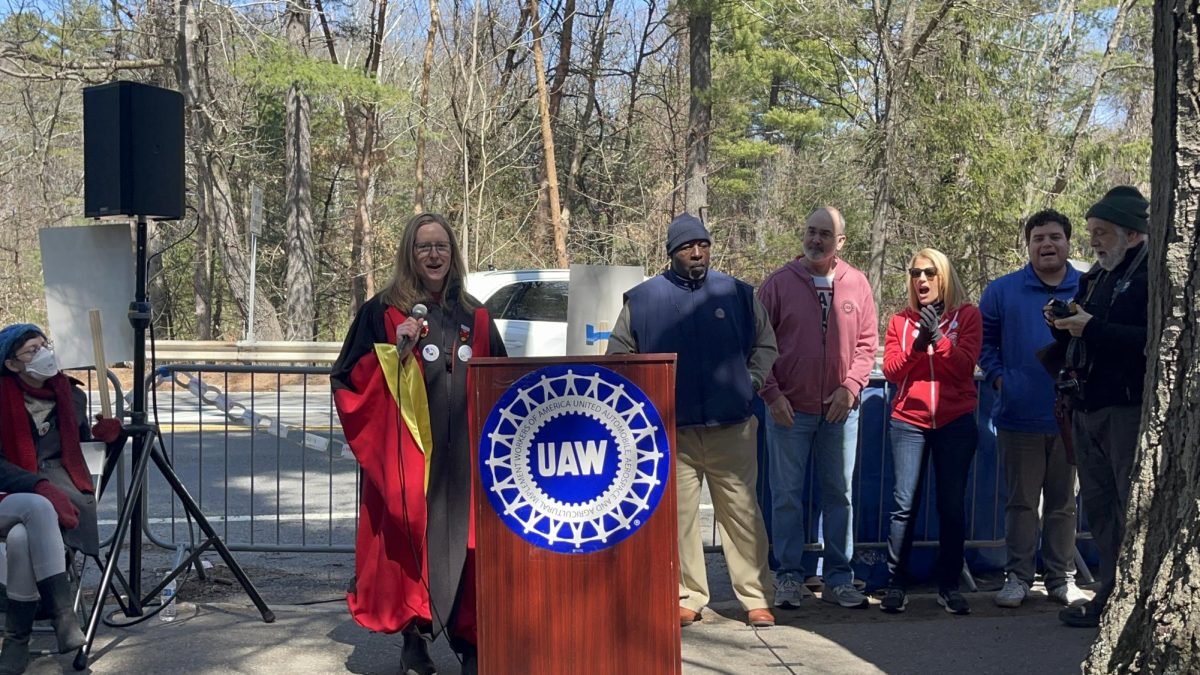Since the resignation of College Government’s (CG) Secretary Treasurer last month, Senate has taken the initiative to openly discuss the issue of not paying Cabinet Members. Seeing as this was an issue in the previous election as well, CG members and students as a whole have been trying to find ways and money to compensate Cabinet for the work they do on the behalf of the student body.
During the two previous Senate meetings, there has been time dedicated to discussing ways Cabinet could be paid in the future. One of the most vocal on this issue is Katelyn Campbell ’17, Executive Senator in Pomeroy Hall. For her, the issue of Cabinet pay is personal because it denied her the opportunity to run for a position.
“I personally wanted to run for a cabinet position several times, but I knew that I had to work and I wouldn’t be able to sacrifice the amount of hours it would take to be a cabinet member and work for free.”
Campbell was appointed last year by former College Government President (CGP) Adeline Lee ’16 to serve on the committee seeking to compensate Resident Assistants and House Presidents for their work. This year, she was approached by members of the Student Labor Action Project (SLAP) and the Multifaith Council (MFC) to advocate for Cabinet pay. At the Nov. 14 Senate, she gave a report detailing the issue and encouraged Senators to generate solutions about how the student body can fix this problem.
Campbell believes that Cabinet should be paid by students and not the administration because Cabinet Members are not employees of the college. She suggests using money from the student activities fee to pay them. This solution could be controversial, as the pool of money is allocated to all student orgs on campus, and it has not increased at the same rate as the number of student groups has.
“That is one of the real challenges of paying from the student activities fee. People are already pretty upset that their events are not getting funded as much as they want to––or that SOFC has to be strict with the amount of money that they give out–– because there is not much there once you distribute it out amongst all those people, but it’s really a question of priority,” stated Campbell.
Although Campbell sees that there could be an issue with paying from the activities fee, it is important to compensate these roles because they are an important student voice within the administration.
“The CGP took on really an activist role in a lot of ways. I think the administration has been very welcoming of College Government Cabinet members coming to meetings and serving on committees. We are not going to turn away the opportunity to give students a voice, so as more opportunities have accumulated, it takes more time to be CGP or any other cabinet position,” said Campbell.
Other members of Senate see this issue as well. First year Senator for Shafer Hall, Esme Stribling-Hough ’20, worked on the current Secretary Treasurer Megumi Murakami’s ’20 special elections campaign. One thing they focused on was how to make pay accessible while not getting the administration too involved. Since Stribling-Hough was appointed to Senate mid-semester, she did not know much about the history of cabinet pay at Wellesley. When it was brought up in light of the resignation of the Secretary Treasurer, it made an impact on her perception of Wellesley’s inclusivity.
“When previous secretary treasurer Deb Rowcroft had to step down, and some of the older cabinet members described why and that this has been a pattern, that was something that really struck a chord with me because it related fundamentally to a lot of the admissions slogans of community and inclusivity and diversity that I don’t think are really being addressed.”
A suggestion previously made in Senate was to pay Cabinet members by soliciting alumni donations, but since Wellesley is in the middle of a fundraising campaign, it did not seem feasible.
Currently, Senators in the working group with Campbell are suggesting that Cabinet-led committees such as the College Government President’s Council (CGPC) request to increase their Guaranteed Percentage funding from The Student Organizations Funding Committee (SOFC) this coming spring to cover the costs of compensating the cabinet. If this were to be approved, cabinet would ideally be paid in the fall of 2017.
If compensation were to be approved by SOFC, Campbell and Stribling-Hough believe that more students would be encouraged to run for Cabinet positions in the future. Currently, a majority of Cabinet positions are uncontested, or someone will run as a write-in candidate last minute. Since some students have to work to stay at Wellesley, they do not have the time to run even if they are extremely qualified for the position.
According to Campbell, it is Wellesley’s responsibility to be a pioneer in placing value on the labor of women.
“I think we need to set the precedent here at Wellesley that just because women’s work is often undervalued, that doesn’t mean that we should do that here.”
Senators in the working group will be presenting the full Cabinet pay proposal in the coming months.
Members of College Government were not available for comment.






